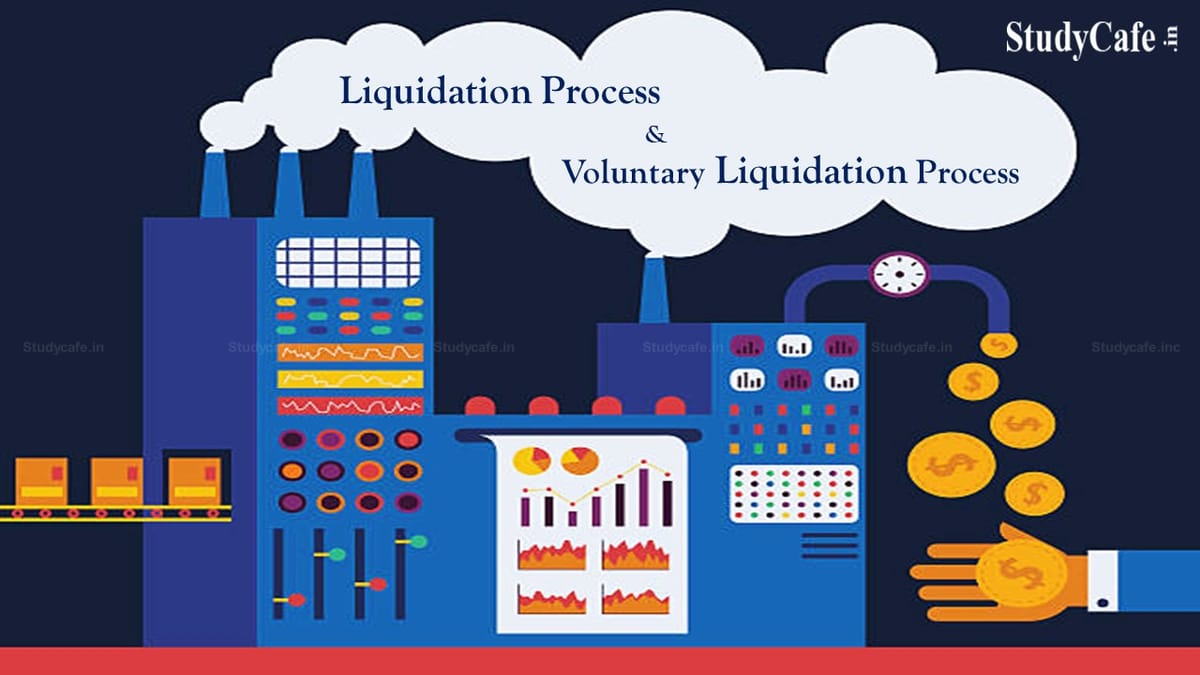Sushmita Goswami | Feb 11, 2022 |

ICAI issued Handbook on Liquidation Process and Voluntary Liquidation Process
The Institute of Chartered Accountants of India (ICAI) issued Handbook on Liquidation Process and Voluntary Liquidation Process under The Insolvency and Bankruptcy Code, 2016
Every business face life cycle comprising of phases: Birth, Growth, Maturity, Decline and at times Rebirth.
In a dynamic, challenging and competitive business environment sometimes businesses face financial distress perhaps in a phase of decline and are unable to meet the financial obligations. In such cases businesses need timely resolution of insolvency and if that is not possible then orderly exit may be required to overcome the situation. To fulfil this need, The Insolvency and Bankruptcy Code, 2016 (IBC) was enacted with the objective of consolidating and amending the laws relating to re-organization and insolvency resolution of corporate persons, partnership firms and individuals in a time bound manner. The purpose of the Code is maximization of value of assets, promote entrepreneurship and balance the interest of all stakeholders.
Though the primary aim is to revive the businesses through resolution of insolvency under IBC, but at times when it does not happen and in that case the Code provides for Liquidation Process and detailed regulations thereunder. Further the Code also provides that a corporate person who intends to liquidate itself voluntarily and has not committed any default can initiate Voluntary Liquidation Proceedings. Both the Liquidation Process and Voluntary Liquidation Process are being carried out by Insolvency Professionals registered with Insolvency and Bankruptcy Board of India (IBBI) in a time bound process, which is different as compared to Winding up in Companies Act, 2013.
In the Event of the following there is initiation of the Liquidation Process against the Corporate Debtor under IBC
Provisions with respect to initiation of Liquidation Process against the Corporate Debtor are given below.
(1) Where the Adjudicating Authority, –
(a) before the expiry of the insolvency resolution process period or the maximum period permitted for completion of the corporate insolvency resolution process under section 12 or the fast track corporate insolvency resolution process under section 56, as the case may be, does not receive a resolution plan under sub-section (6) of section 30; or
(b) rejects the resolution plan under section 31 for the non-compliance of the requirements specified therein, it shall-
(i) pass an order requiring the corporate debtor to be liquidated in the manner as laid down in this Chapter;
(ii) issue a public announcement stating that the corporate debtor is in liquidation; and
(iii) require such order to be sent to the authority with which the corporate debtor is registered.
(2) Where the resolution professional, at any time during the corporate insolvency resolution process but before confirmation of resolution plan, intimates the Adjudicating Authority of the decision of the committee of creditors approved by not less than sixty-six per cent. of the voting share to liquidate the corporate debtor, the Adjudicating Authority shall pass a liquidation order as referred to in sub-clauses (i), (ii) and (iii) of clause (b) of sub-section (1).
Explanation. – For the purpose of this sub-section, it is hereby declared that the committee of creditors may take the decision to liquidate the corporate debtor, any time after its constitution under sub-section (1) of section 21 and before the confirmation of the resolution plan, including at any time before the preparation of the information memorandum.
(3) Where the resolution plan approved by the Adjudicating Authority under section 31 or under sub-section (1) of section 54L, is contravened by the concerned corporate debtor, any person other than the corporate debtor, whose interests are prejudicially affected by such contravention, may make an application to the Adjudicating Authority for a liquidation order as referred to in sub-clauses (i), (ii), (iii) of clause (b) sub-section (1).
(4) On receipt of an application under sub-section (3), if the Adjudicating Authority determines that the corporate debtor has contravened the provisions of the resolution plan, it shall pass a liquidation order as referred to in sub-clauses (i), (ii) and (iii) of clause (b) of sub-section (1).
(5) Subject to section 52, when a liquidation order has been passed, no suit or other legal proceeding shall be instituted by or against the corporate debtor:
Provided that a suit or other legal proceeding may be instituted by the liquidator, on behalf of the corporate debtor, with the prior approval of the Adjudicating Authority,
(6) The provisions of sub-section (5) shall not apply to legal proceedings in relation to such transactions as may be notified by the Central Government in consultation with any financial sector regulator.
(7) The order for liquidation under this section shall be deemed to be a notice of discharge to the officers, employees and workmen of the corporate debtor, except when the business of the corporate debtor is continued during the liquidation process by the liquidator.
To Read More – Click Here
In case of any Doubt regarding Membership you can mail us at contact@studycafe.in
Join Studycafe's WhatsApp Group or Telegram Channel for Latest Updates on Government Job, Sarkari Naukri, Private Jobs, Income Tax, GST, Companies Act, Judgements and CA, CS, ICWA, and MUCH MORE!"